If you’ve been feeling unusually tired, gaining weight without changing your diet, or constantly shivering in a warm room, those are the most common hypothyroidism symptoms that prompt a doctor’s visit. Below you’ll find a quick‑scan checklist, an explanation of why these signs appear, and the exact tests doctors use to confirm—or rule out—an underactive thyroid. Let’s dive in together, friends.
Quick Scan
First things first: can you spot the classic signs in your daily life? Grab a pen, or just keep scrolling, and see which of these resonate with you.
| Symptom | Typical Frequency | What It Might Mean |
|---|---|---|
| Persistent fatigue | Most common | Low thyroid hormone slows metabolism, leaving you drained. |
| Unexplained weight gain | Very common | Hormone shortage makes your body store more fat. |
| Cold intolerance | Common | Reduced heat production due to a slower metabolic rate. |
| Dry, coarse skin or hair | Common | Thyroid hormones help maintain skin & hair health. |
| Muscle aches or joint stiffness | Frequent | Slowed cellular repair leads to soreness. |
Do any of these pop up for you? If you’re ticking off three or more, it’s worth a chat with your primary‑care provider. Remember, many of these signs can sneak in slowly—so trust your gut (and your body’s messages).
Why It Happens
How does thyroid hormone regulate metabolism?
The thyroid produces two main hormones: thyroxine (T4) and triiodothyronine (T3). Think of them as the body’s “energy switches.” They tell every cell how fast to work, from your heart beating to your stomach digesting. When the thyroid underperforms, it flips those switches down, and everything feels sluggish.
What happens when hormone levels drop?
Low T3/T4 means:
- Cells generate less heat → you feel cold.
- Muscles receive fewer signals → you’re weaker and sore.
- Digestive muscles slow → constipation.
- Skin cells renew slower → dry, flaky skin.
Why do skin, hair, and nails change?
Thyroid hormones help keratin (the protein that makes up hair and nails) form properly. When the hormone supply dwindles, the cells become “lazy,” resulting in brittle nails, coarse hair, and that dreaded “puffy face.”
What links hypothyroidism to mood & cognition?
Thyroid hormones also whisper to neurotransmitters like serotonin and norepinephrine. When that whisper fades, mood swings, brain “fog,” and memory dips can follow. A 2023 review in Endocrine Reviews found a 30 % uptick in depressive symptoms among untreated hypothyroid adults.
Doctor’s Tests
What is the “under‑active thyroid test”?
Doctors start with a simple thyroid blood test. The key numbers are:
- TSH (Thyroid‑Stimulating Hormone) – usually high when the thyroid is lazy.
- Free T4 – the active hormone; often low in overt hypothyroidism.
If TSH is elevated but free T4 is still in the normal range, you might have “subclinical” hypothyroidism – a warning sign that a full‑blown issue could be on the horizon.
When is a thyroid blood test ordered?
Doctors typically order the test when you present at least three core symptoms, have a family history of thyroid disease, or are pregnant (the hormone demand spikes dramatically). It’s also routine before major surgery to avoid peri‑operative complications.
What additional tests might be ordered?
Depending on the picture, a doctor may add:
- Thyroid antibodies (TPO, TG) – to identify Hashimoto’s autoimmune thyroiditis.
- Lipid panel – because low thyroid often raises cholesterol.
- Neck ultrasound – if a goiter or nodules are palpable.
What results confirm hypothyroidism?
Typical cut‑offs (lab‑specific ranges vary):
- TSH > 4.5 mIU/L
- Free T4 < 0.8 ng/dL
When both are abnormal, the diagnosis is clear. If only TSH is high, doctors monitor closely and may start low‑dose medication, especially if you have symptoms.
Look‑Alikes
How to tell hypothyroidism apart from anemia?
Anemia also burns energy and makes you cold, but it usually shows pale skin, low hemoglobin, and iron‑deficiency signs on blood work. A quick CBC can separate the two.
What about depression vs. low‑thyroid mood changes?
Depression often includes persistent sadness, loss of pleasure, and sleep disturbances without the physical signs of cold intolerance, weight gain, or slowed heart rate. If your mood shifts are paired with physical low‑thyroid clues, a thyroid check is wise.
Can “post‑viral fatigue” mask hypothyroidism?
Post‑viral fatigue usually improves within weeks, whereas hypothyroid fatigue lingers or worsens over months. If you’re still fatigued after a few weeks, ask for a thyroid panel.
When to refer to an endocrinologist?
If TSH > 10 mIU/L, you have a large goiter, abnormal antibodies, or you’re pregnant, a specialist’s guidance is recommended.
Managing It
What medication is first‑line?
Levothyroxine (synthetic T4) is the gold standard. Dosing is individualized—usually 1.6 µg per kilogram of body weight for adults, but lower if you’re over 60 or have heart disease. Take it on an empty stomach, and wait at least four hours before calcium or iron supplements to avoid absorption issues.
Can diet help?
While medication does the heavy lifting, a thyroid‑friendly diet can smooth the journey:
- Iodine – found in seaweed, dairy, and iodized salt; essential for hormone production.
- Selenium – Brazil nuts, sunflower seeds, and fish support the conversion of T4 to active T3.
- Limit large amounts of raw cruciferous vegetables (broccoli, cabbage) if you’re iodine‑deficient, as they contain goitrogens that can interfere with hormone synthesis.
Exercise recommendations?
Low‑impact cardio (walking, swimming) helps counter weight gain, while strength training preserves muscle mass that can feel lost during hypothyroidism. Aim for 150 minutes of moderate activity a week – your future self will thank you.
How often should labs be repeated?
After adjusting levothyroxine dose, a follow‑up thyroid blood test is usually done in 6–8 weeks. Once stable, most guidelines recommend checking TSH every 6–12 months. The American Thyroid Association advises this frequency for patients on steady therapy.
When to consider alternative therapies?
Some patients explore desiccated thyroid or liothyronine (T3) supplements. Evidence is mixed, and these options can cause swings in hormone levels. Always discuss with your endocrinologist before making changes.
Special Groups
Infants & toddlers
Newborn screening programs routinely test TSH via a heel‑prick. If a baby shows poor feeding, jaundice, or an umbilical hernia, doctors may order a confirmatory test right away.
Pregnancy considerations
During pregnancy, your body needs about 50 % more thyroid hormone. Untreated low thyroid raises risks of miscarriage, pre‑eclampsia, and impaired neurodevelopment in the baby. The target TSH in the first trimester is usually below 2.5 mIU/L, and levothyroxine doses often increase early in pregnancy.
Elderly patients
Older adults are the most likely to develop hypothyroidism, but symptoms can blend with normal aging. Doctors start with a low dose to avoid stressing the heart, and they monitor closely for any rhythm changes.
Gender differences
Women are five to eight times more likely to develop an underactive thyroid, especially after menopause when estrogen fluctuations alter immune function. Men can get it too—just look for subtle weight changes and muscle pain.
Takeaway
If you notice a cluster of fatigue, cold intolerance, weight changes, and skin/hair issues, a simple blood test can tell whether an under‑active thyroid is behind them. Early diagnosis—through the TSH and free‑T4 panel—allows timely treatment, which usually restores energy, mood, and metabolism within weeks. Don’t ignore these signals; they’re your body’s way of asking for help.
Talk to your primary‑care provider if any of the highlighted symptoms persist, especially when they overlap with other conditions. Share your experience in the comments below or ask your doctor about a thyroid blood test today—taking that first step can change how you feel tomorrow.



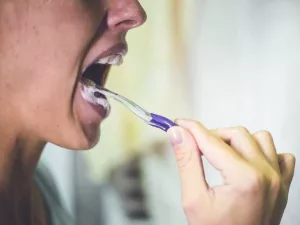

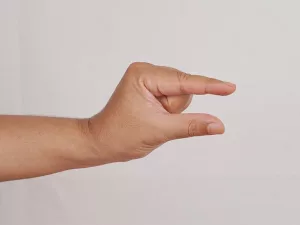


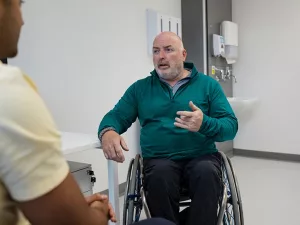
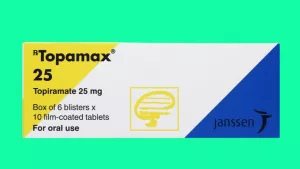

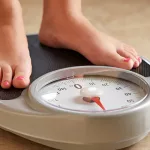





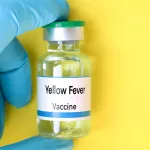
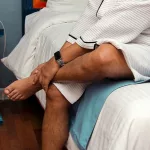

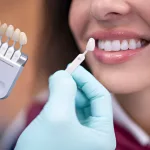
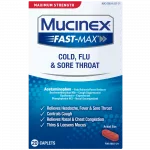



Leave a Reply
You must be logged in to post a comment.